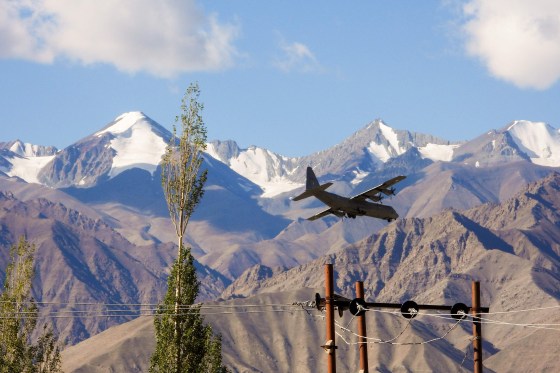China and India said on Friday they had agreed to deescalate tensions on their contested Himalayan border and take steps to restore "peace and tranquility" following a high-level diplomatic meeting in Moscow.
Chinese State Councilor Wang Yi and Indian Foreign Minister S. Jaishankar met in Moscow on Thursday and reached a five-point consensus, including agreements that troops from both sides should quickly disengage and ease tensions, the two countries said in a joint statement.
The consensus, struck on the sidelines of a Shanghai Cooperation Organization meeting, came after a confrontation in the border area in the western Himalayas earlier this week.
"The two Foreign Ministers agreed that the current situation in the border areas is not in the interest of either side," they said in the statement.
"They agreed therefore that the border troops of both sides should continue their dialogue, quickly disengage, maintain proper distance and ease tensions."
Jaishankar told Wang that the immediate task would be for troops to step back from the "areas of friction" so that things do not get worse, an Indian source told Reuters. Troops are barely a few hundred meters apart at some points.
China and India have accused each other of firing into the air during the confrontation, a violation of long-held protocol not to use firearms on the sensitive frontier.
Download the NBC News app for breaking news and politics
Wang told Jaishankar the "imperative is to immediately stop provocations such as firing and other dangerous actions that violate the commitments made by the two sides," China's foreign ministry said in a statement on Friday.
Wang also told Jaishankar all personnel and equipment that have trespassed at the border must be moved to de-escalate the situation.
In June, tensions erupted into a frontier clash in which 20 Indian soldiers were killed and China suffered an unspecified number of casualties.
The ministers' meeting lasted for two hours and was the latest diplomatic effort to head-off a broader conflict between the world's two most populous countries, which went to war in 1962.
China's Global Times, an influential tabloid published by the official newspaper of China's ruling Communist Party, said in an editorial published late on Thursday that any talks with India should be paired with "war readiness."
"The Chinese side must be fully prepared to take military action when diplomatic engagement fails, and its frontline troops must be able to respond to emergencies, and be ready to fight at any time," the newspaper said.

